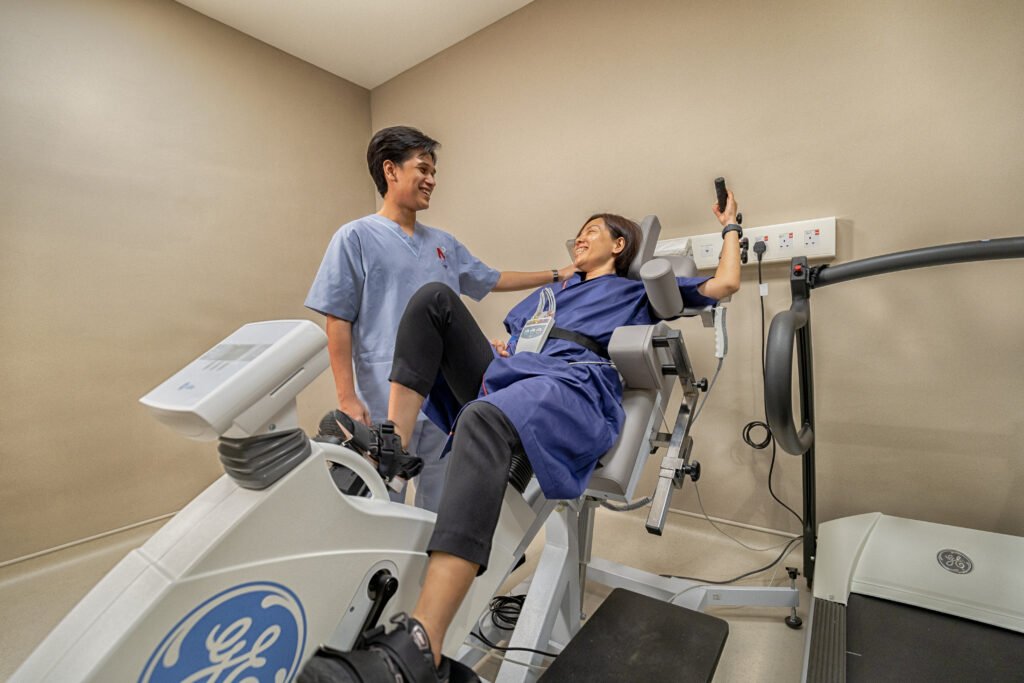Step-by-Step Guide to Cardiac Rehabilitation

So, you’ve had a heart event maybe surgery, a heart attack, or a diagnosis that turned your world upside down. The good news? It’s not the end. In fact, it could be the beginning of a stronger, healthier you. Welcome to your complete step-by-step guide to cardiac rehabilitation, your roadmap to a full recovery with support from Northern Heart Hospital.
What Is Cardiac Rehabilitation?
Cardiac rehab is a structured program designed to help you recover after a heart-related condition or procedure. It combines exercise, education, and support to help you regain strength, prevent future heart problems, and improve your quality of life.
Who Needs Cardiac Rehab?
If you’ve experienced a heart attack, heart surgery, angioplasty, or been diagnosed with heart failure, you’re a prime candidate for rehab. But that’s not all. Cardiac rehab also helps people with angina, valve repair, and congenital heart conditions.
Common Conditions That Benefit from Rehab
- Heart attack (myocardial infarction)
- Coronary artery bypass graft (CABG)
- Percutaneous coronary intervention (PCI)
- Heart valve surgery
- Chronic heart failure
If you’re unsure, check with your cardiologist or visit Northern Heart Hospital to get a personalized recommendation.
Why Cardiac Rehabilitation Matters

It’s not just about bouncing back it’s about coming back better. Rehab gives you the tools to take charge of your heart health.
Physical Benefits
Exercise training improves your heart’s efficiency. You’ll notice better stamina, lower blood pressure, healthier cholesterol, and even weight loss. Who doesn’t want to walk up the stairs without huffing and puffing?
Emotional and Mental Support
A heart condition can shake your confidence. Rehab helps you rebuild your mental strength, manage stress, and tackle anxiety or depression with the help of trained professionals and support groups.
Phase 1: In-Hospital Recovery
This starts right after your event or surgery. It’s all about gentle movement, breathing exercises, and learning what happened to your heart.
Starting Rehab Early
Rehab doesn’t mean running laps on day one. It means slow, safe steps like walking the hallway with a nurse or learning how to sit up without straining your chest. At Northern Heart Hospital, your recovery begins the moment you stabilize.
Phase 2: Early Outpatient Rehab
This phase usually kicks off a few days or weeks after discharge. It’s a supervised program involving light exercise and health education.
Supervised Exercise and Monitoring
Trained physiotherapists monitor your heart rate, blood pressure, and oxygen levels as you begin walking, cycling, or using resistance bands. It’s all carefully tailored to your condition.
Lifestyle Counseling
Experts at Northern Heart Hospital help you quit smoking, manage diabetes, and control cholesterol. You’ll also learn how to modify daily habits to protect your heart.
Phase 3: Structured Outpatient Program
This stage focuses on improving your fitness level, confidence, and independence.
Building Endurance and Confidence
You’ll gradually increase your activity level, set personal goals, and build a routine that fits your life. Think of it as personal training with your heart in mind.
Phase 4: Maintenance and Long-Term Habits
This final phase is all about sustaining your progress.
Staying Active at Home
From brisk walking to joining local fitness groups, this stage is your long-term lifestyle commitment. You’ll also get ongoing support from Northern Heart Hospital if needed.
Nutrition in Cardiac Recovery
What you eat after a heart event plays a massive role in how well you recover.
What Should You Eat After a Heart Event?
Focus on:
- Whole grains, fruits, and veggies
- Lean proteins like fish or chicken
- Heart-healthy fats (think olive oil, not butter)
- Cutting back on salt, sugar, and processed food
Need help with a meal plan? The dietitians at Northern Heart Hospital can craft one just for you.
Emotional Health and Support Systems
Don’t underestimate the emotional toll of heart disease. Fear, guilt, and even depression are common. That’s why cardiac rehab includes group therapy, peer support, and one-on-one counseling.
Support is not a luxury it’s part of the healing. Northern Heart Hospital offers mental health resources as part of your holistic recovery.
Getting Started with Cardiac Rehab at Northern Heart Hospital

Ready to begin? Northern Heart Hospital has a fully equipped cardiac rehab program tailored to your unique needs. From the moment you walk in, a multidisciplinary team cardiologists, physiotherapists, nurses, and nutritionists work together to rebuild your heart and your confidence.
Final Thoughts: Your Heart’s Second Chance
Recovering from a heart event can feel overwhelming. But cardiac rehab gives you a clear, structured path back to health and back to life. Every step is a step toward strength. And with the right support, like what you’ll find at Northern Heart Hospital, your heart doesn’t just heal. It thrives.
FAQs
Q1: How long does cardiac rehab take?
Typically, 12 to 36 sessions over 3 to 12 weeks, depending on your condition and response.
Q2: Can I do cardiac rehab at home?
Yes, with remote guidance or hybrid programs available through Northern Heart Hospital.
Q3: Is cardiac rehab covered by insurance?
Most insurance plans cover it, but always confirm with your provider and the hospital’s billing team.
Q4: Will I need a referral to start?
Yes, usually from your cardiologist. Visit Northern Heart Hospital to get started.
Q5: Is cardiac rehab safe for seniors?
Absolutely. Rehab programs are tailored to all ages and fitness levels, ensuring safety and progress.
